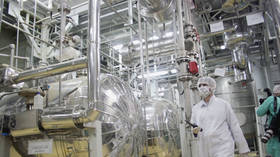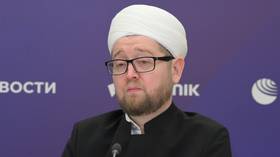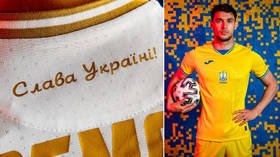‘Increasingly difficult’ to extend Iran monitoring agreement, UN nuclear watchdog chief says

Talks to extend the agreement allowing UN inspectors to monitor Iranian nuclear activity are becoming increasingly arduous, the head of the organization’s International Atomic Energy Agency (IAEA) has said.
In May, the nuclear watchdog and Iran agreed on a one-month extension to the monitoring deal until June 24 after the original three-month agreement expired.
“I think it’s becoming increasingly difficult,” IAEA Director General Rafael Grossi told a press conference on Monday, after being asked how realistic it was for both parties to agree to a further extension later this month.
The previous extension came after a “very long conversation,” Grossi, said, adding that the space in which a consensus can be reached is “narrowing down.”
“We are not going to see our activities, our inspection capacities curtailed anymore … because these matters, what’s going on is serious,” he added.
Also on rt.com Latest Iran nuclear deal revival talks end on a high, EU negotiator says he believes deal will be struck next weekIran has not responded publicly to Grossi’s concerns, although Tehran’s permanent representative to the UN, Kazem Gharibabadi, previously said the county had made the “utmost efforts” to cooperate with the IAEA.
Iran had reduced its cooperation with the watchdog after former US President Donald Trump announced in 2018 that America would withdraw from the Iran nuclear deal.
Negotiations to revive the landmark accord – officially called the Joint Comprehensive Plan of Action (JCPOA) – have been taking place in Vienna for several weeks, with the sixth round of talks due to kick off in the next few days.
Also on rt.com US sanctions become blessing in disguise for Iran’s energy sectorUnder the JCPOA, Iran originally agreed to strict nuclear curbs, including limiting the amount of uranium it produces and stores, in exchange for sanctions relief from western nations which feared Iran was pursuing nuclear weapons – a claim Tehran denies.
In response to the US abandoning the deal, Tehran stepped up its nuclear activities.
Last week, the EU’s Deputy Political Chief Enrique Mora, who is managing the indirect US-Iranian negotiations, reported progress in attempts to bring both nations back to the original agreement.
He said he was “sure” a deal would be reached during the sixth round of talks.
Think your friends would be interested? Share this story!













